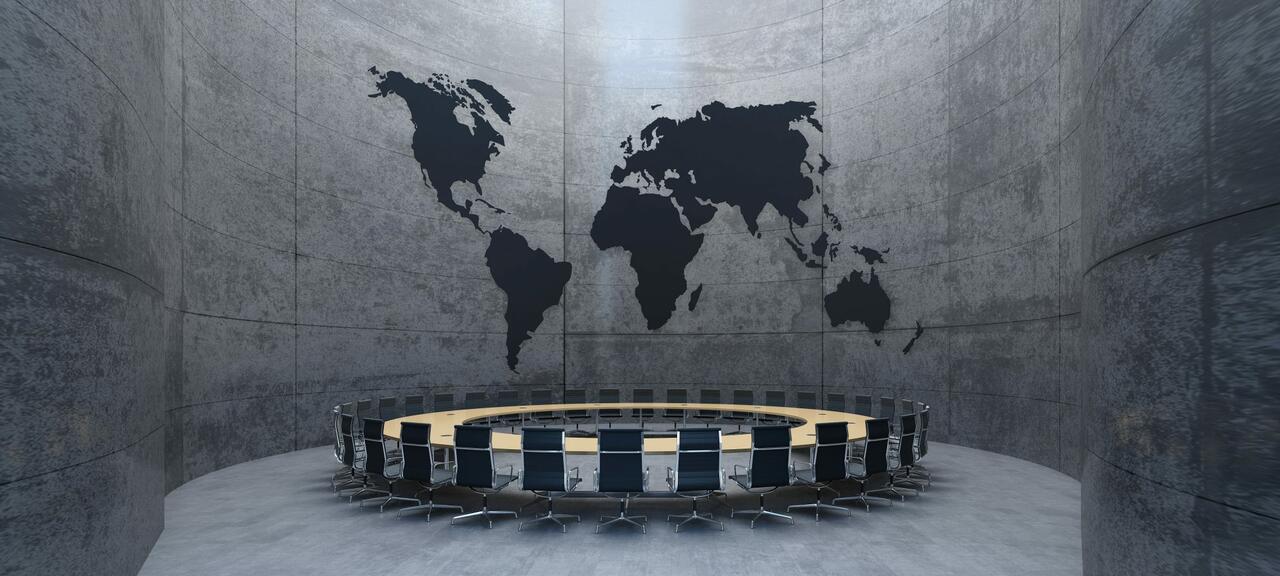
By Janet Phelan
In an effort to align all nations of the world with its public health policies, the WHO is drafting a “pandemic treaty,” which will achieve the status of law once it is approved and ratified by national mechanisms. In the US, that means a 2/3 approval by the Senate, followed by an official signing of the treaty by the President.
However, the schedule to allow stakeholder (NGO) and other input on a proposed pandemic treaty has apparently fallen under the guillotine, as the WHO is cancelling the second round of public input, scheduled for June 16-17.
As of today, this appeared on the webpage for the Intergovernmental Negotiating Body, which was established by the WHO in late 2021 to facilitate the drafting of a pandemic treaty.
It appears that the first round of input was disastrous, as far as the WHO’s intent pursuant to this proposed treaty. According to James Roguski, a writer who has been focusing on pandemic issues, this is due to the overwhelmingly negative public response to the very idea of a pandemic treaty. He reports that
1. There were 36,294 written submissions made via the dedicated online portal on the WHO website during the public hearings. In due course, those written submissions will be uploaded and archived on the WHO public hearings webpage.
2. The majority of written contributions proposed that no international instrument should be established.
In addition, the first round of hearings, which took place in April, featured a number of spoken contributions, which are archived here.
These spoken contributions also reflected a general disinclination on the part of the contributors to endorse a treaty which would effectively strip sovereign nations of their health sovereignty.
Writing for the Washington Post, Adam Taylor attempted to dismiss such concerns as products of paranoia. In an article titled, “Global health talks clouded by conspiracy theories about pandemic treaty,” Taylor states that global leaders are facing
“… another viral problem: a visceral, passionate online backlash that falsely accuses the World Health Organization of conspiring to take power from national governments.”
In fact, that is exactly what treaties do. They provide an international framework which achieves the level of national law and which mandates the compliance of sovereign nations. In the case of a pandemic treaty, what would be created would be a centralized system to deal with emerging outbreaks, real or imagined. Such centralization of authority would squash local protest and render meaningless and actually illegal contrary decisions by local authorities. Taylor apparently needs a course in international law.
Taylor goes on to attempt to reassure us that this global takeover of our health protocols is not imminent. He writes that “…it will take years of negotiations to reach a final draft” and that “2024 is the target.”
This reporter has repeatedly contacted the media relations department of the WHO. Citing my position as chair of an NGO which has engaged the UN in terms of convention participation and also in document contributions, I asked (and asked and asked) how I could be involved in the treaty drafting process. In fact, I strongly believe that the accrued evidence of covert pandemic delivery systems, as revealed in my recent book, could obviate any further discussion of “pandemic treaties.”
A lackadaisical media representative from the WHO, Tarik Jašarević, responded to my repeated queries by stating that
“you are not a reporter but we still try to help. If I hear something from colleagues I will let you know. “
He did not let me know that the second session for public input was cancelled, nor did he respond at all to my requests for how I could be involved in discussions about the pending pandemic treaty. He also ignored my earlier communications, citing my press credentials.
The overall modus operandi here appears to be similar to what President Bush suggested after 9/11 — “Go shopping.” As reported by Justin Fox in Time Magazine, “After the 9/11 terrorist attacks, President Bush didn’t call for sacrifice. He called for shopping. ‘Get down to Disney World in Florida,’ he said. ‘Take your families and enjoy life, the way we want it to be enjoyed.’” Fox goes on to suggest that such exhortations have a calculated and cynical impetus, which is to deter public scrutiny.
It is indeed time to tune in, rather than tune out.
Source: www.activistpost.com/2022/06/the-who-cancels-public-comment-on-proposed-pandemic-treaty.html
